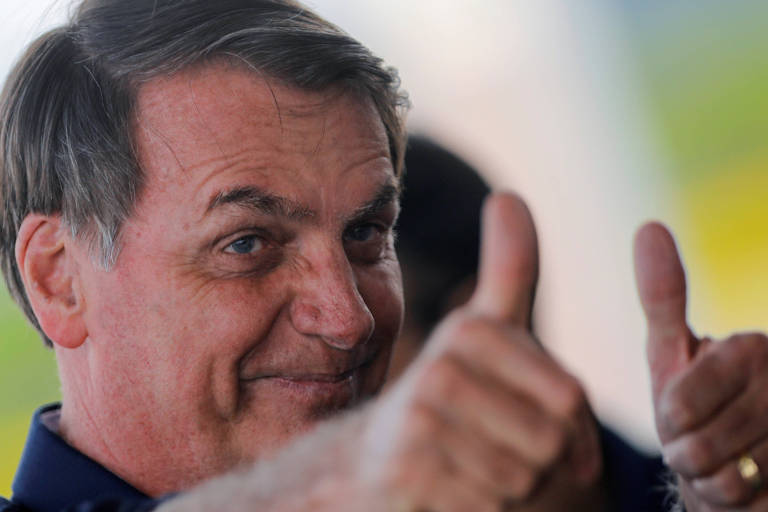RIO DE JANEIRO, BRAZIL – Over the past seven months, Brazil has experienced the worst health tragedy in its history, with almost 160,000 deaths from the coronavirus. During this time, President Jair Bolsonaro caused a string of controversies due to his obsession with downplaying the gravity of Covid-19.
His stance placed him on a collision course with governors, mayors, and health authorities, including his administration – he lost two Health Ministers and recently disavowed its current head, Eduardo Pazuello, forcing him to reverse a commitment to the São Paulo government to purchase the Chinese-developed vaccine. He also helped to establish the negative image of a negationist ruler around the world. Given this, it was reasonable to assume that his image would be seriously damaged.
The opposite occurred: his popularity grew, a phenomenon confirmed by the most recent survey on the subject, conducted by Paraná Research between October 8th and 13th. According to the survey, the number of Brazilians who find their government great/good, which stood at 31.8 percent in April at the start of the crisis, climbed to 38.7 percent in October.

The granting of the emergency aid payments had significant weight, but it is not the only reason. The change in Brazilians’ perception of the pandemic over the past few months has favored Bolsonaro. In May, one in every three people named the President as the one to blame for the deaths (35.1 percent). This figure dropped to 26.2 percent in September.
Currently, right after Bolsonaro, the Brazilians blame the population itself for the tragedy – 19.9 percent of respondents, double the preceding survey. “This is the consequence of constant crowding in public spaces, which proved that society was not adopting social isolation,” says Murilo Hidalgo, director of Paraná Research, who signs an evaluation on public opinion in the pandemic.
Another significant point was his apparent victory in the dispute over the controversies surrounding the need for social isolation. While people with higher income, secured employment or savings, a minority population, were more receptive to the quarantine advocated by mayors and governors, small-scale entrepreneurs, casual workers, and parents who need schools and daycare centers to go to work, began to experience difficulties and embraced the reopening discourse to a greater extent.
Observers also point to a certain “normalization” in the number of deaths and infections. “In a scenario in which people are tired of isolation, feeling the economic consequences and, simultaneously, anesthetized with respect to its impacts on life, Bolsonaro was on the rise,” says political scientist Cláudio Couto, from FGV (Getúlio Vargas Foundation).
In terms of the behavior expected from a leader, Bolsonaro did everything wrong, but the political balance achieved thus far is positive. “The President bet on a narrative that aimed precisely at the stress curve moment of the pandemic when the economic impact of isolation measures hit people hard,” assesses political scientist Fernando Schüler, professor at INSPER.
It worked. Meanwhile, governors and mayors who rightly sustained the need for quarantines have preserved their popularity at a stable level, including São Paulo governor João Doria, who became the main opponent of the President’s behavior.
In September, Doria held 20.1 percent of the great and good rating, virtually the same level as in September 2019 (22.4 percent). His ally and party colleague, São Paulo mayor Bruno Covas, saw his rating stabilize at around 30 percent between July and October.
Undeniably, the injection of R$231.2 billion (US$46 billion) in public funds, in the form of emergency aid payments, had a decisive influence on Bolsonaro’s popularity. It caused the main change in the President’s support base. The grant, which he was reluctant to implement and which will be paid only until December, reached over 67 million Brazilians and, according to an FGV study, took 15 million people out of extreme poverty.
According to IBOPE (Brazilian Institute of Public Opinion and Statistics), the measure had an instant impact on the president’s image. Compared to December 2019, his great/good ratings increased 12 points in the Northeast, North, and Midwest, regions that are home to half of all aid beneficiaries. His approval also increased among those who earn up to one minimum wage and those who only attended elementary school through 4th grade.
The injection of funds helped to reduce the despair of Brazilians during the pandemic, as shown by the CNT/MDA survey released this week: in May, 68.1 percent considered that the employment situation would worsen and 46.7 percent believed that their income would drop – in October, these percentages fell to 30.1 percent and 20.7 percent, respectively.
The point is that, despite the positive indications of a rebound, there is a challenge in finding something to replace the emergency aid. One of the temptations to be avoided is to seek fiscal space in extreme solutions, which would sustain popularity in the short term but would reduce the level of confidence in public accounts.
Choosing this path may work against the President in the long run and potentially hinder his plan to secure reelection in 2022. So far, Bolsonaro has surprised many with his survival skills by betting against everyone amid the turbulent pandemic environment. But the many obstacles before him in the near future will require much more than intuition and political cunning.
Source: Veja

